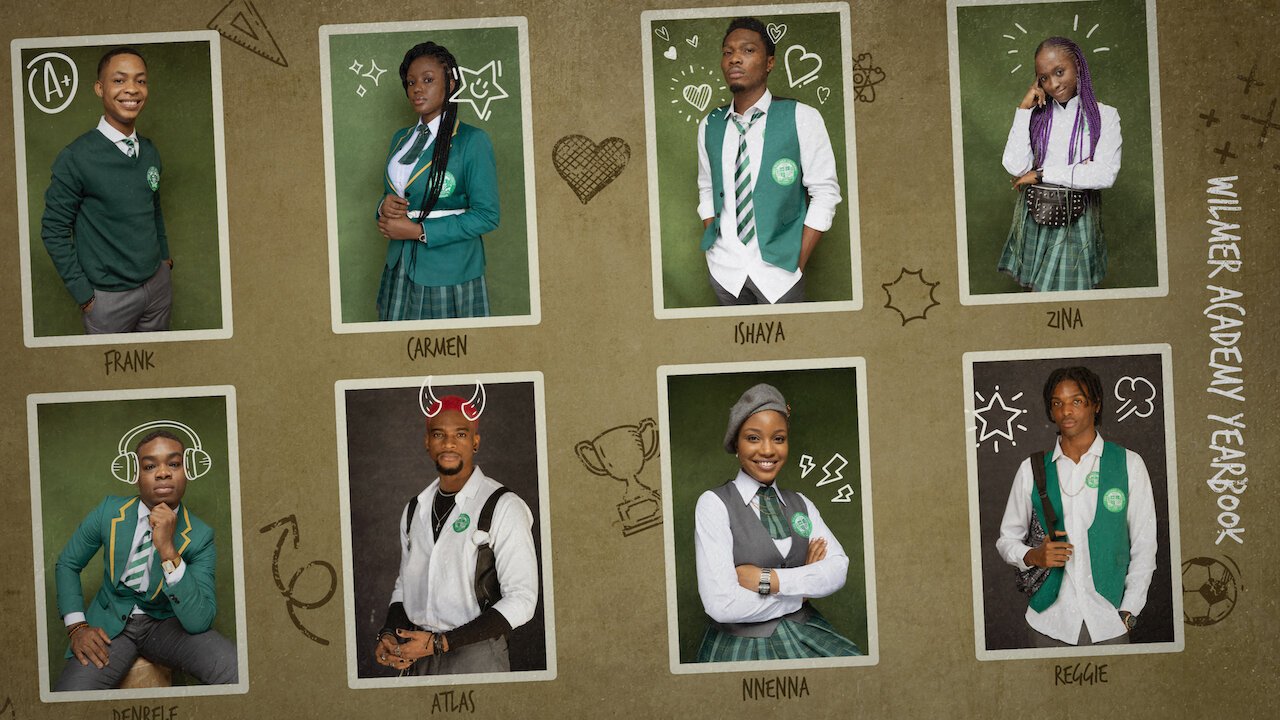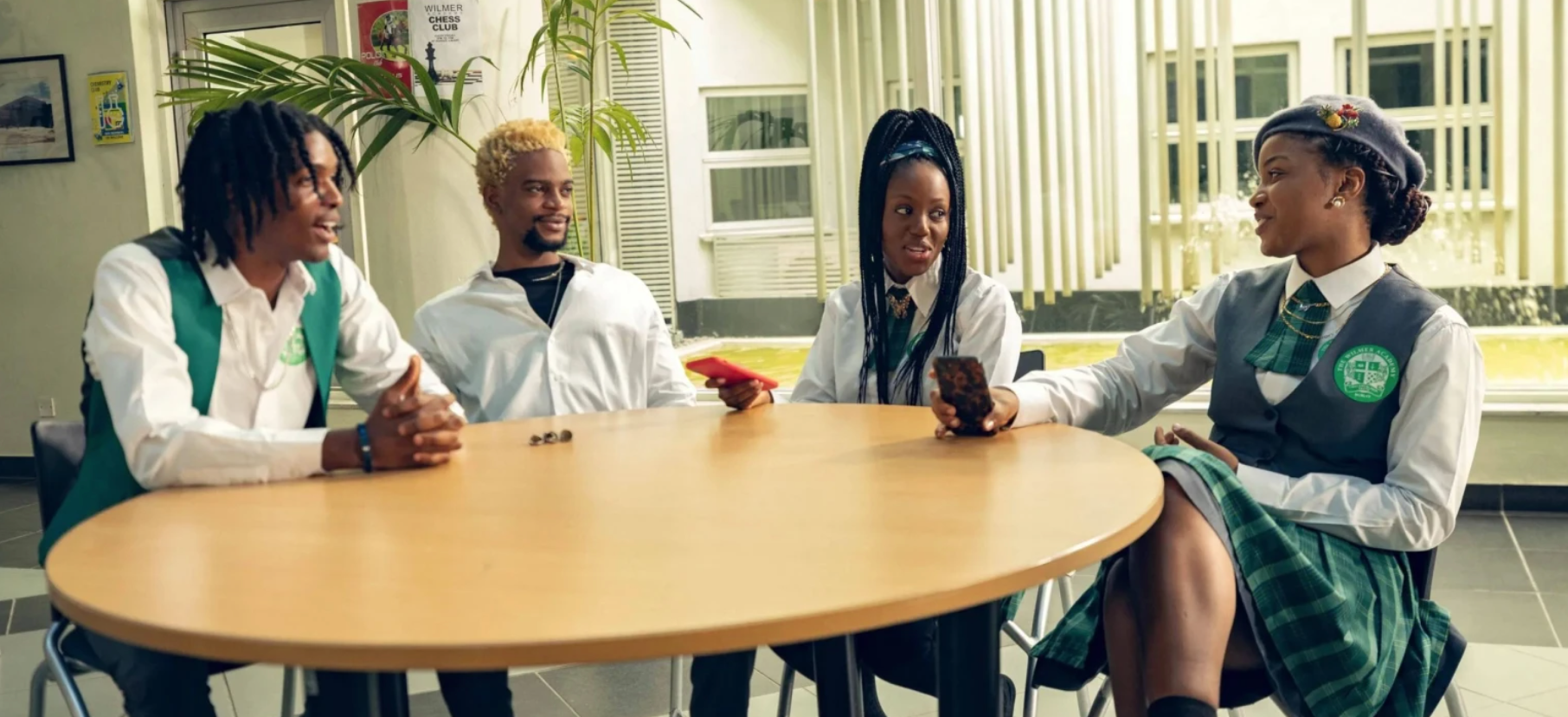How ‘Far From Home,’ Nigeria's Debut Netflix Young Adult TV Series, Inspired a New Nollywood
The main cast of Netflix’s Far From Home
Far From Home, Nigeria's first Netflix young adult TV series, was released on December 16, 2022 and has been one of the ten most-watched Netflix TV series in Nigeria for over two months.
Comprised of five episodes and produced by Inkblot Productions, the show’s main protagonist is Ishaya Bello, a poor talented artist who pursues his artistic dreams against all odds. Far From Home stars some of the most exciting stars coming out of Nollywood: Michael Afolarin, who played Tunde in Your Excellency; Genoveva Umeh, who played Timileyin in Blood Sisters, and Olumide Oworu; Daniel Obalolu in Man of God. The series also stars veteran actors such as Richard Mofe-Damijo, Funke Akindele, Bimbo Akintola, Femi Branch and Bolanle Ninalowo.
Far From Home’s most alluring hallmark is its unique narrative arc. The story explores the nuances of classism and urbanisation against the backdrop of relentless youthful daydreams and hurdles; it wittily embodies the zeitgeist of Nigeria’s Sọ̀rọ̀ sókè generation. Sọ̀rọ̀ sókè, which means speak up in Yoruba, became a political slogan in the revolutionary #EndSARS protests against police brutality that dominated the Nigerian consciousness in 2020.
Far From Home was shot shortly after. Although there is no explicit mention of this context, its undertones are evident. ‘Government’ is a gangster’s moniker. He and his partner in crime, Oga Rambo, seize Rahila, Ishaya’s sister, after Ishaya steals money from them to fund a trip to London for an artistic apprenticeship. His mother can’t report to the police because Oga Rambo bribes them.
Ishaya is a waiter at a strip club, and opportunity doesn’t find him until he wins a scholarship to Wilmer Academy, an elite school. The son of a cleaner, he and Rahila, his sister, find out about the scholarship via a television advert. Their mother, Patricia, aware of the huge wedge between the rich and the poor in Lagos, turns off the television and deems it an unrealistic dream.
Rahila is heartbroken while Ishaya continues trying to raise money for his trip to London. Luck comes through when he finds the answers to the scholarship exam in the bin of Denrele, a wealthier boy. Ishaya memorises the answers and gets admitted into Wilmer Academy. At Wilmer Academy, Ishaya is referred to as a “backwater slum rat”. His classmates hail from wealthier families, but despite the huge background differences, he is still able to make friends. He develops an instant attraction to Carmen, the daughter of the school’s founder. The chemistry between them is arguably the most palpable takeaway from the series.
Such an affection between young characters is not new to Nollywood, but Far From Home’s love triangles, sheeny Founder’s Day balls, and teenage energy make for an enthralling experience markedly different from phenomenal older Nollywood romcoms such as The Wedding Party and Fifty. Very few Nollywood movies centre a protagonist like Ishaya, an emerging artist who blazes through Lagos Island, selling hyperrealist artworks.
Credit: Nora Awolowo // Netflix
Even rarer to find in Nollywood is the expansive range of students one meets in Far From Home. At Wilmer Academy, the drama is alive and eclectic. There is Reggie, a socialite who hosts parties for only the cool kids. Nnena, a pastor’s daughter, has an affair with Carmen’s boyfriend at one of such parties. Atlas, Carmen’s boyfriend, catches Ishaya kissing Carmen. The duo fight afterward. It's giving all the chaos it's supposed to give.
A typical Nigerian secondary school is characterised by such fights and animosity between prefects and juniors, in addition to melodramatic teachers. Far From Home exemplified that culture accurately, but its fancy locker rooms and Founder’s Day balls are rather grandiose for a Nigerian show.
It is not implausible though as Wilmer Academy is a school of Lagosian billionaires; one that presumably adopts both Nigerian and foreign curricula; a school where talented young artists compete for the London Art Institute grant, Ishaya’s propelling north star.
Michael Afolarin as Ishaya Bello in Netflix’s Far From Home
So powerful is this dream and its hurdles that Ishaya gets trapped in a gang web and connives with Adufe, his ex-lover, to kidnap Frank, his roommate at school. Ishaya is reluctant but eventually concedes. The duo, both from low-income families, end up in circumstances they never foresaw. When Carmen becomes the next kidnapping target, Ishaya is so distraught that he confesses to her and his principal. Police then ambush the gang’s abode. Government gets arrested while Oga Rambo escapes and leads a revenge attack on Wilmer Academy.
The climactic attack ushers in some of Nollywood’s most captivating conflict scenes in the past year. The school’s management goes into a frenzy when the kidnappers quash Wilmer Academy’s security while the students are left to defend themselves. Reggie’s hand combat is particularly remarkable for a film industry with not too many movies centering students discovering and defending themselves the way those in Far From Home do. Ishaya’s protection of Carmen as they run from the kidnappers is also notably compelling.
With such an exuberant protagonist and an eclectic cast, Far From Home is irrefutably a landmark of Nollywood’s ongoing revitalization. Thanks to Netflix Nigeria, series like King of Boys and Blood Sisters have brought Nigerian cinema to global audiences. Although Far From Home’s genre and characters differ from the aforementioned thrillers, the show is yet another milestone for Nollywood. On TikTok alone, the hashtag #farfromhomenetflix has a total view count of over 27.2 million across posts. Memes and snippets from the show continue to spread while its actors amass fans.
Official Netflix poster for Moshood Fattah as Michael in Far From Home
In a statement to Kenga, Moshood Fattah, who played Michael in the show, notes his experience with this as “fame that came like a hurricane.” Far From Home was released about the same time as Battle on Buka Street, where Fattah acted too. So far, Battle on Buka Street has grossed over 600 million naira while Far From Home continues to top national charts on Netflix.
Though Fattah wishes to insulate himself from “the fleeting madness of fame,” upon request, he offers a little insight into the casting: there were seven “gruelling” stages after which principal photography began, with significant reshoots spanning several months. Genoveva Umeh, who played Zina, initially auditioned for the role in 2020 but didn’t get it. The COVID-19 pandemic halted the filming process but as Inkblot Productions recalibrated and began again, she re-auditioned after acting in Blood Sisters and got the role. Genoveva revealed this in a casting interview with Chude Jideonwo, a lawyer and media entrepreneur widely known for his immersive interviews with Nigerian celebrities on his show, #WithChude.
Dami Elebe, the head writer, also present in that interview, shared how she coordinated a virtual writers’ room of collaborating screenwriters - Jola Ayeye, Chiemeka Osuagwu and Nkiru Njoku, according to the film’s closing credits - focusing on building well-rounded characters.
“Every single character has an art,” she said to Chude. “The chemistry that was put in the script, it’s a joy to see on the screen,” she noted.
“We're sitting on a goldmine,” Moshood Fattah tells Kenga. According to the thirty-two year old star, Far From Home was a gift and perhaps the biggest test of he and his co-stars’ careers yet. Speaking on Nollywood’s prospects going forward, Fattah believes Nigeria is full of talent but that more should be done to nurture writers and visionary directors “whose works can bridge the hurdles of language and appeal to a global audience.”
“We just need real writers, daring directors and producers who care,” he concludes.




